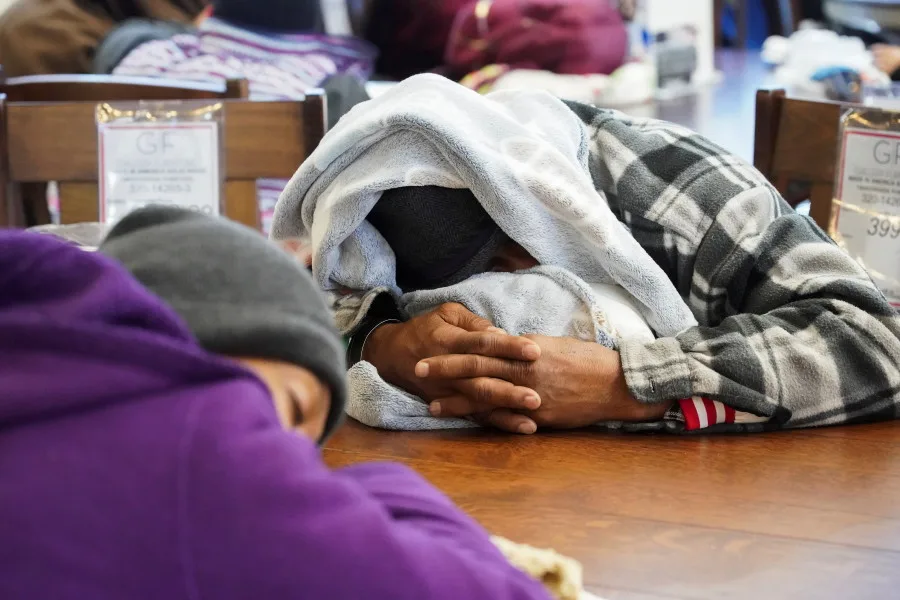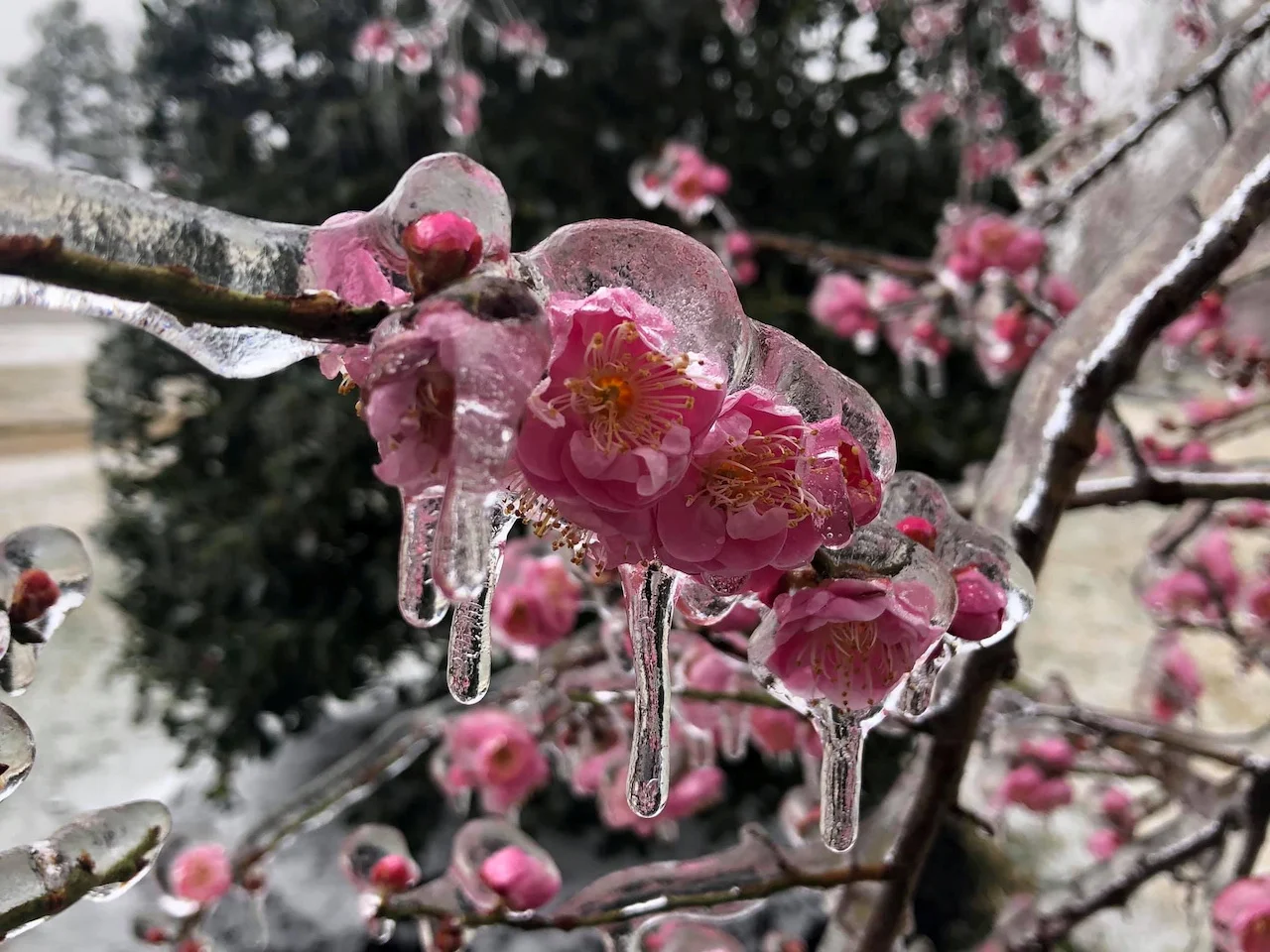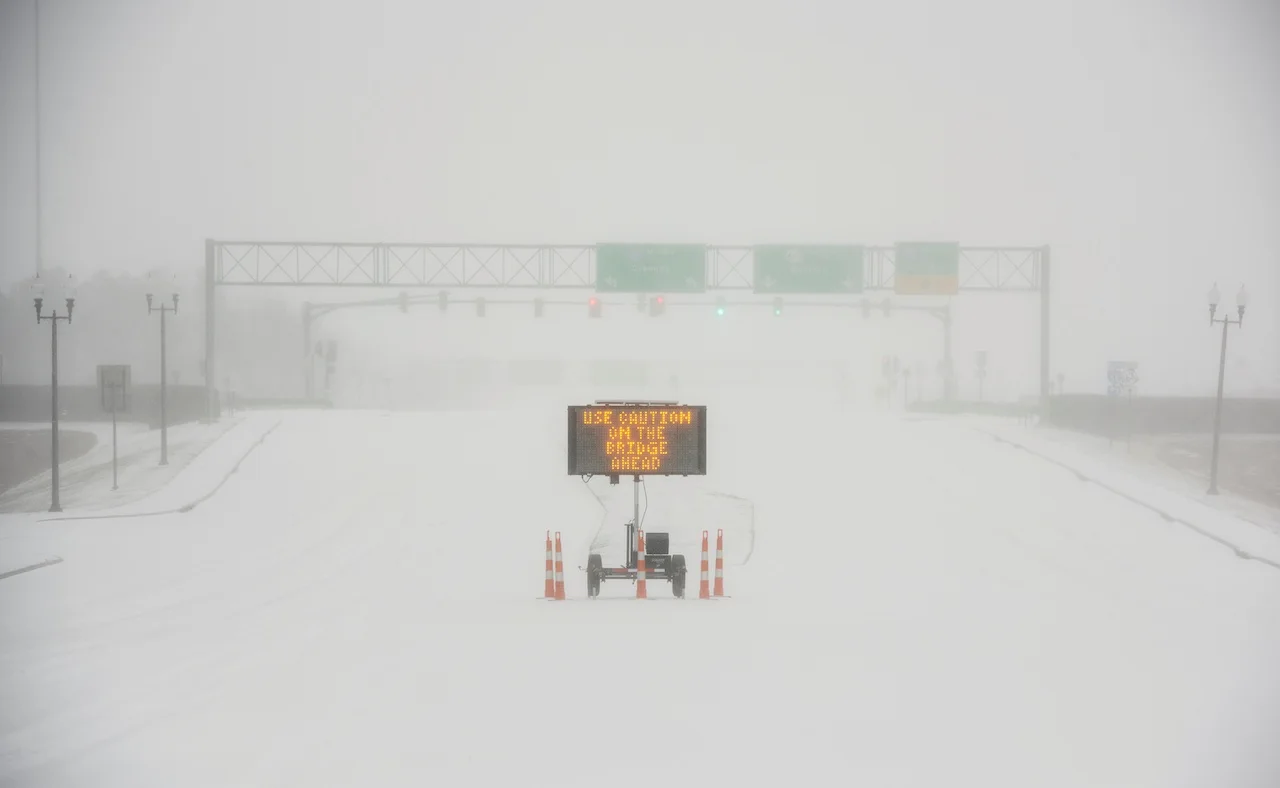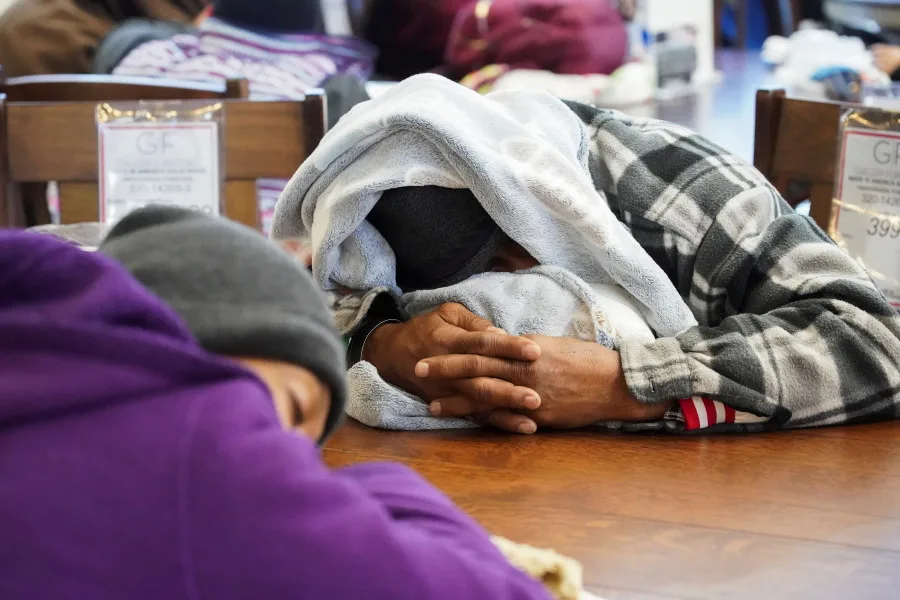
'Ice everywhere' as Texans brave cold, 2.7 million homes lack power
By Go Nakamura
HOUSTON (Reuters) - Millions of Texans braved their third day without heat on Wednesday following a punishing winter storm that has killed at least 21 people, as icy conditions threatened to hamstring the country's second-largest state and the surrounding region for days.
Some 2.7 million households were without power, according to the Electric Reliability Council of Texas (ERCOT), a cooperative responsible for 90% of the state's electricity which has come under increasing fire for a massive failure of the power grid.
Laura Nowell, a 45-year-old mother of four in Waco, Texas, said her family has been without electricity since before dawn on Monday and has been trying to keep warm by bundling up and running and sitting in their car for short stints.
"We've never had this much cold. There is ice everywhere," Nowell said, adding that she was frustrated by the lack of communication about rolling blackouts to conserve the power grid. "Tell me what's going on. It's silence."

Horses wait for the ice to be broken in their water trough as the sun rises in Bastop county near Austin, Texas, U.S. February 15, 2021. Nell Carroll/American Statesman/USA Today Network via REUTERS.
The National Weather Service said snowfall and ice accumulation would likely end around midday on Wednesday in North Texas, offering some reprieve, although it kept a winter storm warning in effect through 8 p.m and warned that historically low temperatures would continue for days.
Moreover, a low responsible for the snow and freezing rain crippling the region was moving east and heavy ice accumulation was expected in parts of Texas, the Lower Mississippi Valley, Virginia and North Carolina by Wednesday night, it said.
"In the areas that contend with these devastating ice accumulations, residents can expect dangerous travel conditions, numerous power outages, and extensive tree damage," the weather service said in its latest update.

Okame Flowering Cherry tree blossoms are seen frozen on Valentine's Day in front of RX3 Compounding Pharmacy in Chester, Virginia, U.S. February 14, 2021. Kristi K. Higgins/progress-index.com/USA Today Network via REUTERS.
Harris County Judge Lina Hidalgo, the top official in the most populous county in Texas, on Wednesday said the storms were straining not only the local electric grid but triggering a cascade of effects, including lost water pressure, carbon monoxide poisoning and halted COVID-19 vaccinations.
Hidalgo said she did not trust that ERCOT had a handle on the situation and warned the outages may last several more days.

A sign warns motorists after a sudden heavy bout of snow and frozen rain on MS Highway 463 in Madison, north of Jackson, Mississippi, U.S. February 15, 2021. Barbara Gauntt/Clarion-Ledger/USA Today Network via REUTERS.
"I'm telling my community do not expect the power to come back even after the weather passes," Hidalgo said on CNN. "We've never seen the grid fail."
The storm has killed at least 21 people across four states, and the weather service predicted that temperatures would remain 20 to 35 degrees below average across parts of the central and southern United States for a few days. That could lead to further ice accumulation.
RELATED: Reasons why the deep freeze has been so destructive in Texas
UNPREPARED
Texas' deregulated energy market gives little financial incentives for operators to prepare for the rare bout of intensely cold weather, an issue critics have been pointing out for years. Natural gas wells and pipelines in Texas, the country's biggest energy-producing state, do not undergo the winterization of those farther north - resulting in many being knocked offline by the prolonged freezing weather.
ERCOT, which instituted blackouts to cope with the surge in demand, asked that people focus on fixing the problem first before assigning blame.
"Today what we have to do is get people’s power back on. Debates about electric policy and energy policy are going to come very soon as this issue is dissected and discussed and analyzed," ERCOT Chief Executive Bill Magness told a briefing.

People take shelter at Gallery Furniture store which opened its door and transformed into a warming station after winter weather caused electricity blackouts in Houston, Texas, U.S. February 17, 2021. REUTERS/Go Nakamura
Texas Governor Greg Abbott has demanded that state lawmakers investigate ERCOT and pass reforms.
Austin Mayor Steve Adler blamed the power failures on a lack of preparedness and also called for reforms.
"We need to start taking a look at extreme weather. It's not as unusual as it used to be," Adler told MSNBC.
President Joe Biden has assured the governors of states hit hard by storms that the federal government stands ready to offer any emergency resources needed.
Meanwhile, people were coping the best they could.
Trilby Landry, a 57-year-old homeless man, was escaping the cold at the Gallery Furniture store in Houston that had opened its doors as a warming center, joining people who had fled homes with busted heating systems and water pipes.
"We're makeshifting," Landry said in an phone interview. "Everybody's in a whirlwind right now. They are letting people sleep on couches and chairs. People just want to go home."
(Reporting by Go Nakamura in Houston; Susan Heavey in Washington; Barbara Goldberg in Maplewood, New Jersey; Peter Szekely in New York; and Nathan Layne in Wilton, Connecticut; Editing by Leslie Adler, Jonathan Oatis and Sonya Hepinstall)









